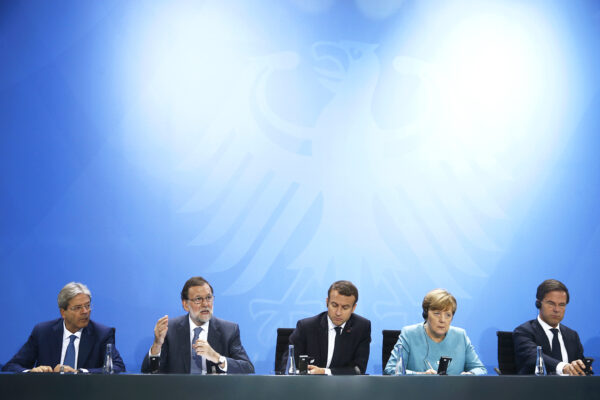
I argued here last month that Donald Trump was inadvertently breathing new life into the EU — whose demise he has publicly wished for — by driving France and Germany closer together.
Now Politico reports that Emmanuel Macron and Angela Merkel have agreed to:
- Jointly develop a new generation of fighter jets;
- Push ahead, together with Italy and Spain, to procure a European alternative to American drones (a “Eurodrone”);
- Cooperate on military space surveillance; and
- Beam data to the EU’s European External Action Service for use in missions around the world.
At a joint news conference, Merkel also left the door open to creating a eurozone finance minister and harmonizing French and German tax rates.
“It’s complicated, but it could boost the internal market,” she said.
Taboos
These used to be taboos.
France has traditionally been protective of its military independence. Germany has been wary of giving the French and other Southern Europeans too much influence over economic and fiscal policy lest they hurt the bloc’s competitiveness.
But the rise of Trump, and the challenge of illiberal democracy more generally to the European project, has focused minds in Berlin and Paris. Merkel and Macron realize they need to provide a counterweight.
If Trump won’t unequivocally back NATO, then Europe must make clear Western solidarity still extends to Russia’s border.
If Trump won’t defend free trade, Europe will. It recently negotiated pacts with Canada, Japan and Mexico.
